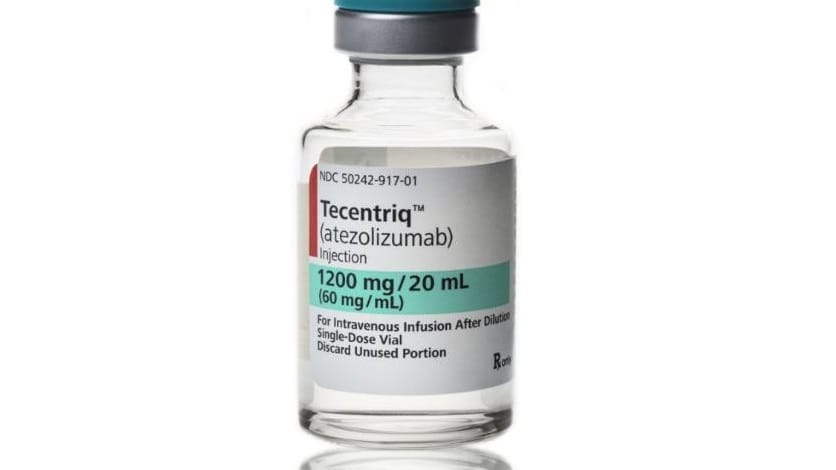
Roche has phase 3 data with a combination of its checkpoint inhibitor Tecentriq with older cancer drug Avastin in liver cancer that it says will support regulatory filings in Europe, the US and China.
The IMbrave150 study in hepatocellular carcinoma (HCC) – the most common form of liver cancer – is the first phase 3 trial to show an improvement in survival with an immuno-oncology regimen, according to the Swiss group.
IMbrave150 involved HCC patients whose cancer could not be treated using surgery but who hadn’t been treated with any other systemic therapy, with patients receiving PD-L1 inhibitor Tecentriq (atezolizumab) plus anti-VEGF antibody Avastin (bevacizumab) or Bayer’s Nexavar (sorafenib), a standard first-line therapy for HCC.
Roche isn’t revealing the detail from the study yet but says patients treated with the antibody combination had “statistically significant and clinically meaningful improvements” in overall survival (OS) as well as progression-free survival (PFS).
If approved, the Tecentriq/Avastin regimen would be the first therapy to extend survival in first-line HCC treatment for more than a decade, according to Roche’s new chief medical officer Levi Garraway (pictured below), who took over from Sandra Horning on 1 October. The combination was awarded a breakthrough designation in HCC from the FDA last year.

Levi Garraway
“We will submit these data to global health authorities as soon as possible,” said Garraway. “Our hope is to bring a new treatment to people with this aggressive disease who currently have limited options.”
Roche is also stressing the importance of a filing in China, given the high incidence of liver cancer in Asia.
The trial readout is another important milestone in Roche’s plans for Tecentriq, a latecomer to the checkpoint inhibitor market. The combination of the checkpoint inhibitor with Avastin is viewed as a central part of its strategy to gain ground on the leaders in the category, namely Merck & Co/MSD and Bristol-Myers Squibb.
The duo has already been approved for non-squamous non-small cell lung cancer (NSCLC) without EGFR or ALK mutations, and as a triple therapy with chemotherapy for EGFR or ALK mutation-positive non-squamous NSCLC, making it the only checkpoint inhibitor likely to mount a challenge to Merck’s Keytruda (pembrolizumab) in this type of lung cancer.
Roche suffered a setback last year however when it decided to withdraw a filing in Europe for Tecentriq/Avastin in renal cell carcinoma – a common form of kidney cancer – on the grounds that the data behind it wasn’t strong enough.
Tecentriq is already carving out a niche in indications like triple-negative breast cancer (TNBC) and extensive-stage small cell lung cancer (ES-CLC) where it isn’t facing direct competition from other checkpoint inhibitors, and Roche is also eyeing other indications such as first-line bladder cancer.
In the first nine months of the year Roche recorded around $1.3bn in Tecentriq sales, a 146% increase on the same period of 2018, but still well behind the $8bn-plus in revenues expected for Keytruda for full-year 2019.




